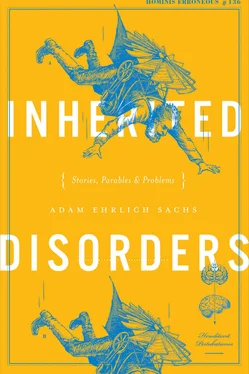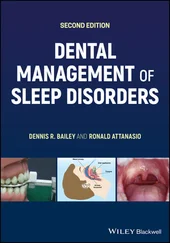Oh, he added, and a biography of Gibbon, the man.
What? said the son.
My plan was to read Decline and Fall and then write a little biography of Gibbon, the man. Who was this guy, this parliamentarian-turned-historian, this classic “man of the Enlightenment”?
Um, said the son. Okay.
La, sang the old man. La. That was the first note of a symphony he had sometimes thought about composing, but had never composed. Please, he said, compose it.
He started coughing, and soon was gasping for air with a frantic look on his face. Oh my God, the son thought, this is it. But the old man managed at last to gather his breath, clear his throat, and request that his son track down and solve the biggest Rubik’s Cube in the entire world, the biggest crossword puzzle in the entire world, and the biggest jigsaw puzzle in the entire world — ambitions the father, a puzzle dabbler of late, must have formulated pretty recently. Find them, he whispered with urgency, and solve them.
He had another coughing fit, and the son had the wrenching thought that it might perhaps be better for his illness to claim him now rather than prolong his suffering. But the fit subsided and the old man cried, So! and began ticking off the tasks on his fingers: read Decline and Fall , write the Gibbon biography, complete the physical treatise, compose the symphony, and solve the three extraordinary puzzles.
With that, the father closed his eyes. His breathing turned shallow, and after a few minutes it stopped altogether. The son was about to call for the doctor when his father abruptly opened his eyes, stared at him, and said in a loud, clear voice: Reforest the Earth.
…………………….
An embattled public figure, ridiculed on every side, returned home, expecting to find comfort at least there , but instead he found his son at the kitchen table producing one unflattering papier-mâché figurine of him after another. His hands still buried deep in gunk, the son insisted that the papier-mâché figurines depicted “men in general.”
…………………….
The philosopher had spent forty years “clearing the ground” for a proper philosophy of mind. His philosophy, he said, was of an exclusively preparatory nature. It would be up to his students to construct the edifice on the ground he’d prepared, an edifice he would almost certainly not live to see.
He had also spent forty years clearing a plot of land he’d purchased in northern Vermont. He cleared brambles and cut down trees. But his landscaping was also of an exclusively preparatory nature: it would be up to his sons to erect the summer home on the ground he had prepared. He knew he would not live to see the summer home.
Though the philosopher claimed to be a fervent atheist, there was, undeniably, a great deal of faith at work here — or so we, his colleagues, whispered amongst ourselves. To live one’s life in such an exclusively preparatory fashion, to always be clearing the ground, implied faith in one’s followers, faith in life — even if not one’s own — continuing after death, in a purpose greater than oneself, in a promised land worth sacrificing oneself for so that others might reach it. All of this groundwork, in philosophy as well as in northern Vermont (near Montpelier), essentially implied, we thought, a belief in God.
When the philosopher fell ill he summoned his lawyer and made one last change to his will. Then he gathered his sons and students around his hospital bed, wished them well in their respective tasks, and died.
The lawyer read the will aloud: it left the philosophical ground that he had cleared to his sons, “upon which they shall construct a positive philosophical theory,” and left the Vermont ground that he had cleared to his students, “upon which they shall construct a summer home.”
There must be some mistake! cried the sons and the students. You mean that the philosophical ground goes to the students and the Vermont ground goes to the sons.
But there had been no mistake. The will plainly stated that the sons got the cleared philosophical ground and the students got the cleared Vermont ground, “and not the other way around.”
A probate court judge upheld the validity of the will.
So the sons, who had no interest in philosophy and were not intelligent, started building a philosophical edifice, and the students, who had no interest in a summer home and were not handy, started building a summer home. Both the philosophical edifice and the Vermont summer home were grotesque, ramshackle structures that collapsed as soon as they were completed, injuring their architects and rendering totally unusable the ground on which they stood. It will probably be hundreds of years before anyone tries to clear the wreckage and construct another theory or another summer home on those particular spots.
We who knew the philosopher have puzzled over his bequest. One faction chalks it up to confusion, a second to mischief, a third to perversity, a fourth to malice, a fifth to ego. A sympathetic sixth group composed mostly of his students believes he lost his faith in his final days and realized his world would end with him. They sense regret, futility, a warning, a last lesson. A seventh group, his sons, thinks he’d simply had an undiagnosed stroke, after which he mistook his sons for his students and his students for his sons.
…………………….
A statistician who, to keep him company after the untimely demise of his social worker wife, had purchased a young yellow-naped Amazon — a species of parrot well known for its high intelligence, its remarkable ability to mimic human speech, and its extremely long life span — stipulated in his will that his “wonderful bird” would go to his “wonderful son,” as that son later related to us on the parrot care forum.
The son was, in fact, overjoyed to inherit the parrot, an affectionate creature who strutted happily about on his shoulders while uttering, in the precise pitch and tone of his father’s voice, nearly two hundred phrases, including “Bayesian updating,” “Null hypothesis,” “Post hoc ergo propter hoc,” and “I love you, sweetie bird.” For reasons that the son has never really been able to articulate, he and his father had fallen increasingly out of touch in the years before his father’s death, despite their absolutely unquestioned love for each other. Something about their relationship — here’s the closest the son came to articulating it, and he felt that it articulated nothing at all — worked better in principle than in practice, he wrote us on the parrot care forum. In any case, he was devastated by his father’s death and grateful to inherit the part of him preserved in the adolescent yellow-naped Amazon, who, when the son entered his father’s dark apartment after the funeral, fluttered joyfully about his cage, repeating “Bayesian updating, Bayesian updating, Bayesian updating, So we can reject the null hypothesis” in the father’s loud lecturing voice. “The normal aka the Gaussian distribution, I love you, sweetie bird!” cried the parrot, in the father’s voice. The son burst into tears as he remembered his dad trying to interest him in these concepts many years ago, he told us later on the parrot care forum, and he contemplated the happy prospect of living the next fifty to sixty years with this companionable and actually somewhat sentimental tropical bird.
But the very moment the son maneuvered the cumbersome bird cage through his father’s front door, toward the car, in order to begin the long drive back home, the formerly cheerful bird started to scream, also in the father’s voice. The bird screamed the entire way home, always in the exact pitch and the exact tone of his father’s voice. When they arrived home, the son set up the bird cage in the living room, hoping that that would be the end of it, but the bird stopped screaming only long enough to declare “The normal aka the Gaussian distribution!” before he started screaming again, in the father’s voice. To this day, despite everything the son has tried, not only covering the cage with a sheet but even moving into his father’s old apartment and resuming the study of statistics — although, as he informed us on the parrot care forum, he didn’t know why he thought this might help — the parrot screams in the father’s voice constantly, pausing only periodically to utter one of his two hundred statistical phrases. “Does anyone,” the son asks the forum, now multiple times a day, even though he’s exhausted our collective expertise, “have any tips for dealing with an adolescent yellow-naped Amazon that will not stop screaming (in my father’s voice)?”
Читать дальше












